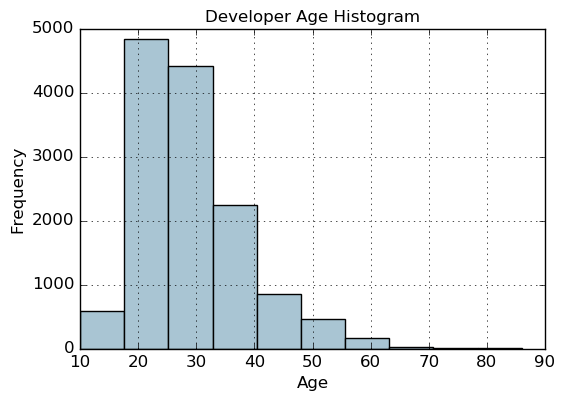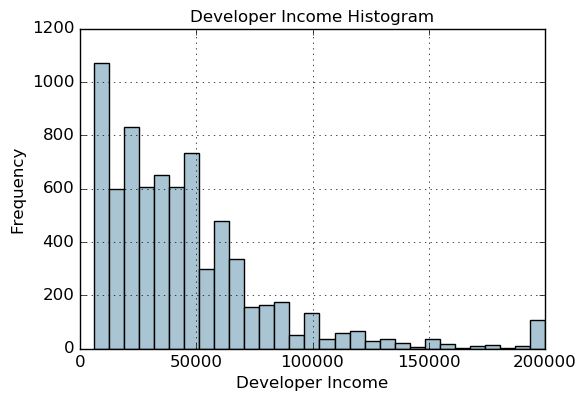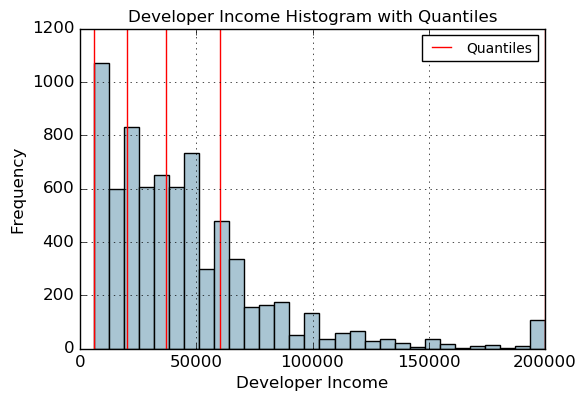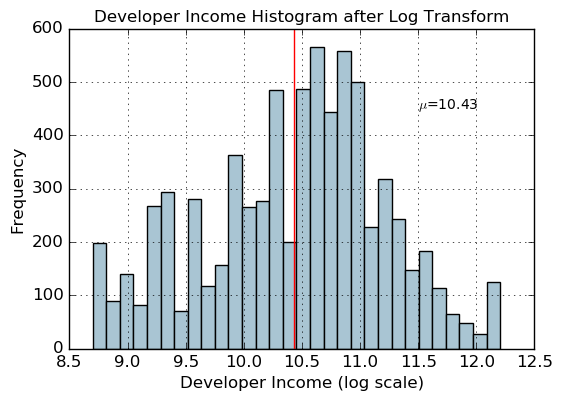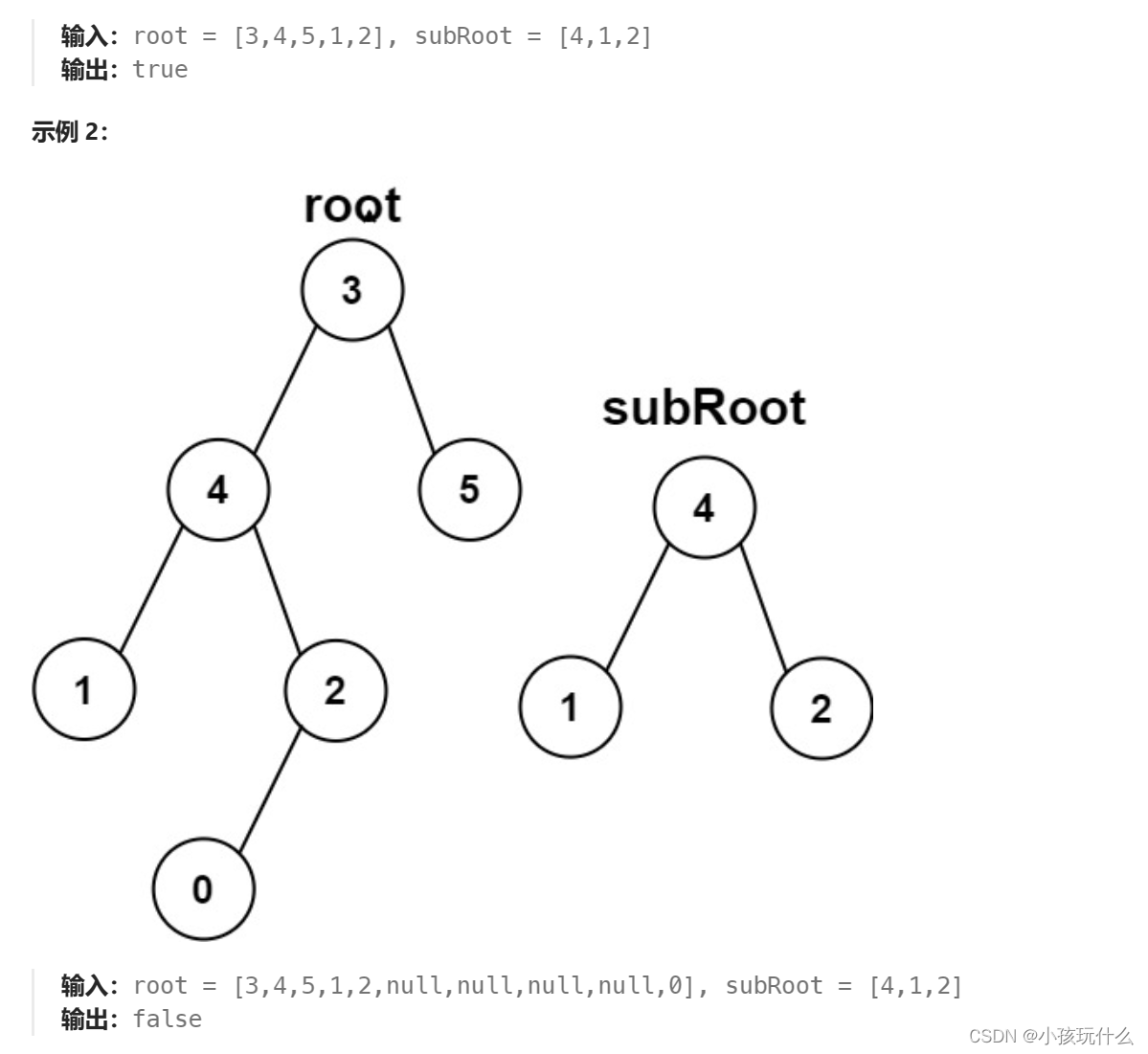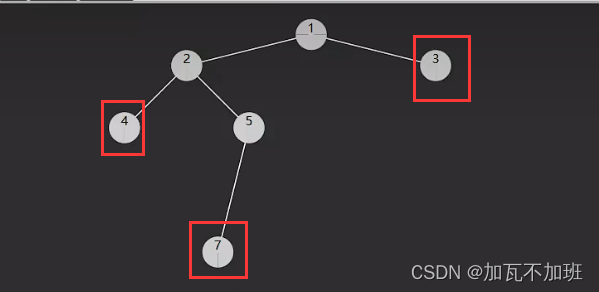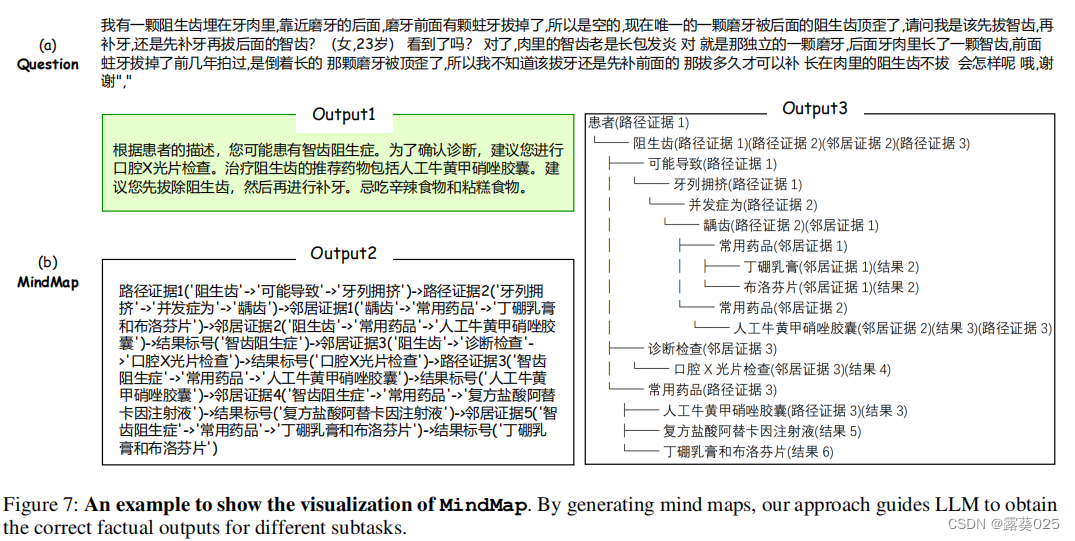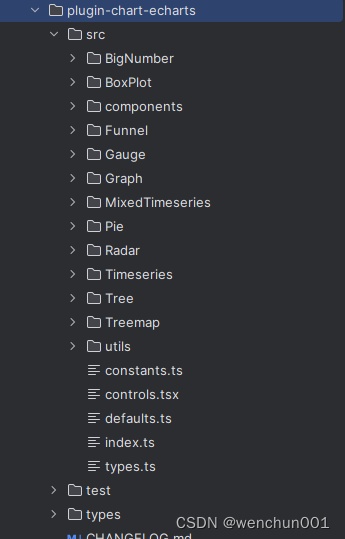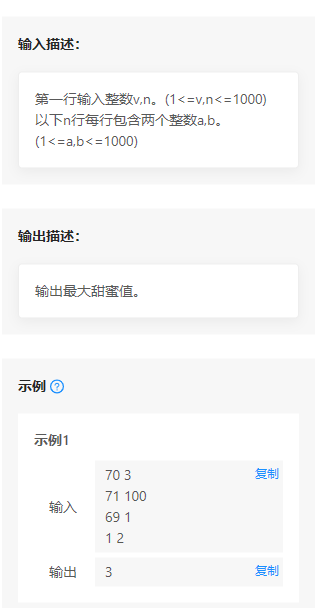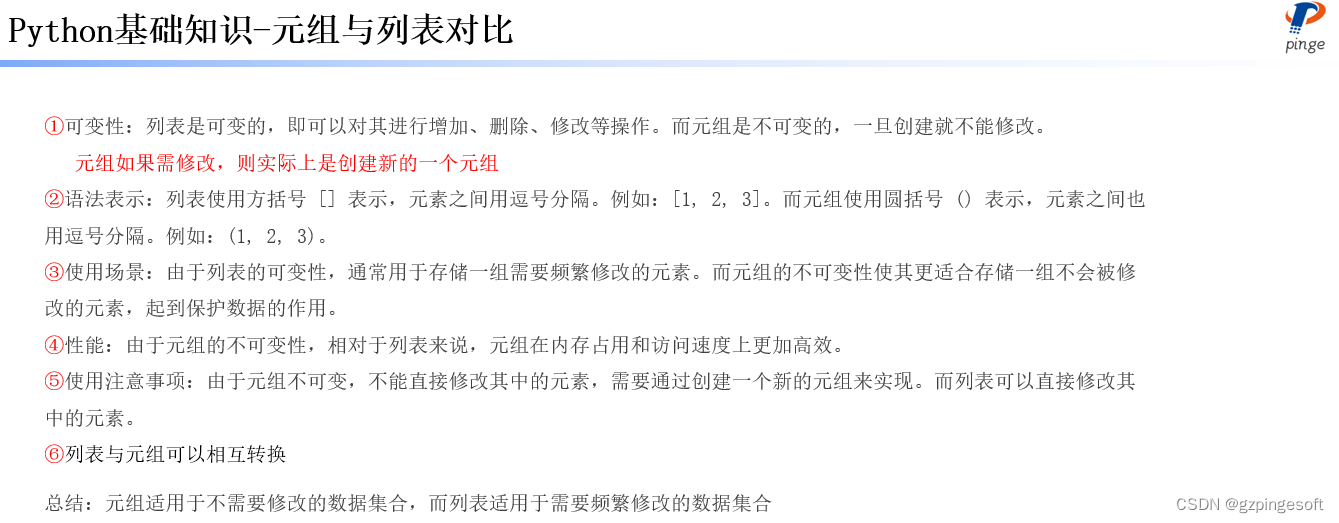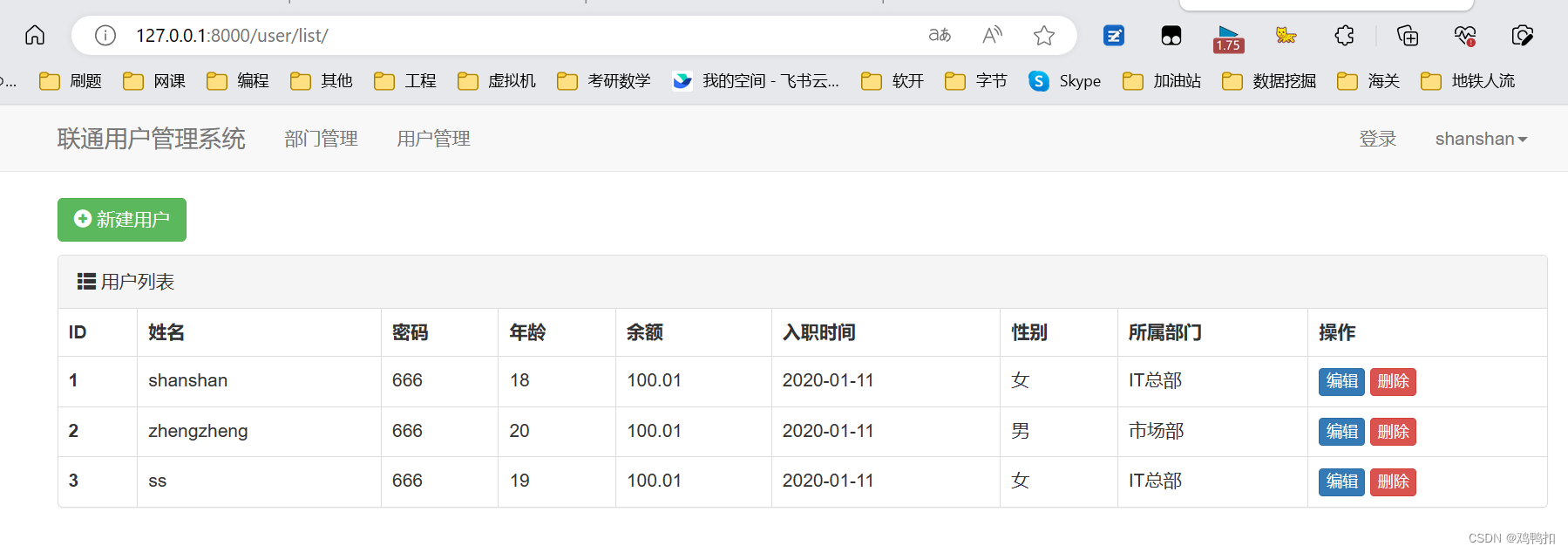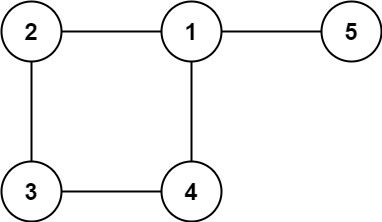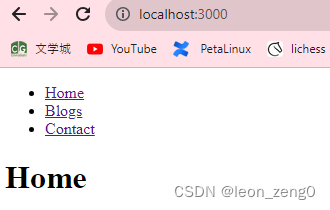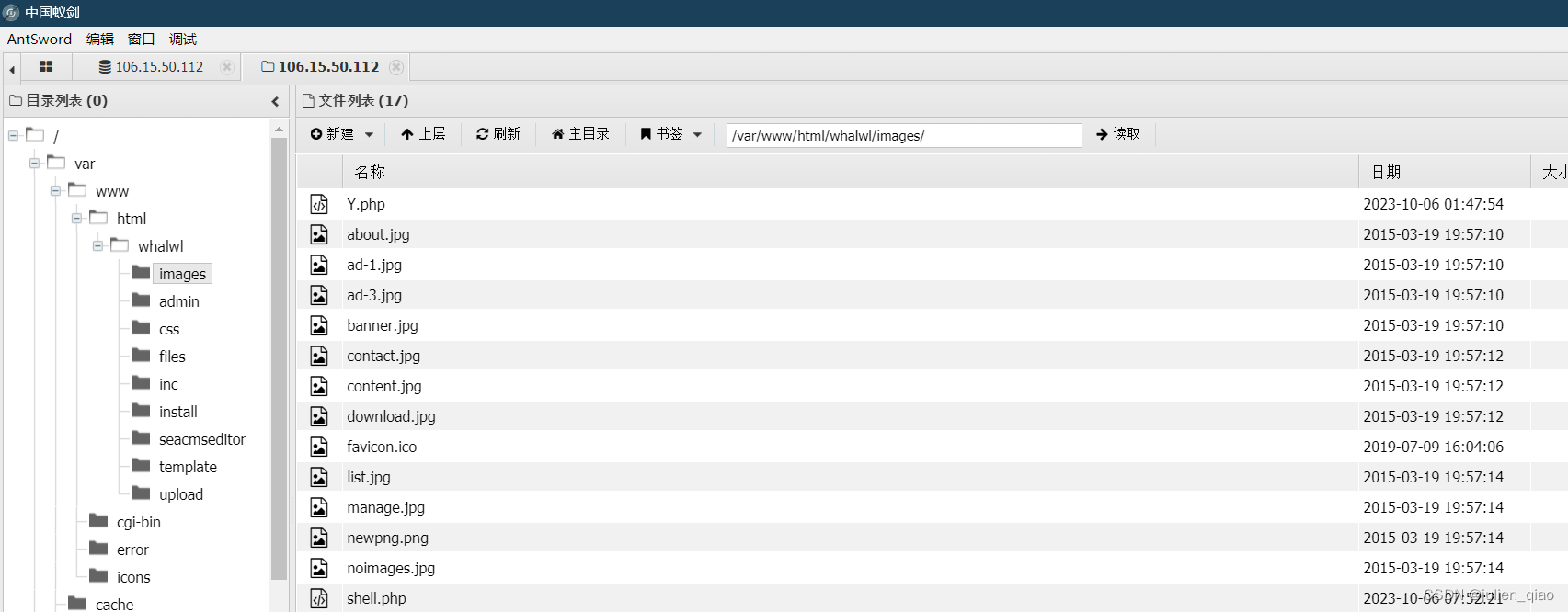import pandas as pd
import numpy as np
vg_df = pd. read_csv( 'datasets/vgsales.csv' , encoding = "ISO-8859-1" )
vg_df[ [ 'Name' , 'Platform' , 'Year' , 'Genre' , 'Publisher' ] ] . iloc[ 1 : 7 ]
Name Platform Year Genre Publisher 1 Super Mario Bros. NES 1985.0 Platform Nintendo 2 Mario Kart Wii Wii 2008.0 Racing Nintendo 3 Wii Sports Resort Wii 2009.0 Sports Nintendo 4 Pokemon Red/Pokemon Blue GB 1996.0 Role-Playing Nintendo 5 Tetris GB 1989.0 Puzzle Nintendo 6 New Super Mario Bros. DS 2006.0 Platform Nintendo
genres = np. unique( vg_df[ 'Genre' ] )
genres
array(['Action', 'Adventure', 'Fighting', 'Misc', 'Platform', 'Puzzle','Racing', 'Role-Playing', 'Shooter', 'Simulation', 'Sports','Strategy'], dtype=object)
from sklearn. preprocessing import LabelEncodergle = LabelEncoder( )
genre_labels = gle. fit_transform( vg_df[ 'Genre' ] )
genre_mappings = { index: label for index, label in enumerate ( gle. classes_) }
genre_mappings
{0: 'Action',1: 'Adventure',2: 'Fighting',3: 'Misc',4: 'Platform',5: 'Puzzle',6: 'Racing',7: 'Role-Playing',8: 'Shooter',9: 'Simulation',10: 'Sports',11: 'Strategy'}
vg_df[ 'GenreLabel' ] = genre_labels
vg_df[ [ 'Name' , 'Platform' , 'Year' , 'Genre' , 'GenreLabel' ] ] . iloc[ 1 : 7 ]
Name Platform Year Genre GenreLabel 1 Super Mario Bros. NES 1985.0 Platform 4 2 Mario Kart Wii Wii 2008.0 Racing 6 3 Wii Sports Resort Wii 2009.0 Sports 10 4 Pokemon Red/Pokemon Blue GB 1996.0 Role-Playing 7 5 Tetris GB 1989.0 Puzzle 5 6 New Super Mario Bros. DS 2006.0 Platform 4
poke_df = pd. read_csv( 'datasets/Pokemon.csv' , encoding= 'utf-8' )
poke_df = poke_df. sample( random_state= 1 , frac= 1 ) . reset_index( drop= True ) np. unique( poke_df[ 'Generation' ] )
array(['Gen 1', 'Gen 2', 'Gen 3', 'Gen 4', 'Gen 5', 'Gen 6'], dtype=object)
gen_ord_map = { 'Gen 1' : 1 , 'Gen 2' : 2 , 'Gen 3' : 3 , 'Gen 4' : 4 , 'Gen 5' : 5 , 'Gen 6' : 6 } poke_df[ 'GenerationLabel' ] = poke_df[ 'Generation' ] . map ( gen_ord_map)
poke_df[ [ 'Name' , 'Generation' , 'GenerationLabel' ] ] . iloc[ 4 : 10 ]
Name Generation GenerationLabel 4 Octillery Gen 2 2 5 Helioptile Gen 6 6 6 Dialga Gen 4 4 7 DeoxysDefense Forme Gen 3 3 8 Rapidash Gen 1 1 9 Swanna Gen 5 5
poke_df[ [ 'Name' , 'Generation' , 'Legendary' ] ] . iloc[ 4 : 10 ]
Name Generation Legendary 4 Octillery Gen 2 False 5 Helioptile Gen 6 False 6 Dialga Gen 4 True 7 DeoxysDefense Forme Gen 3 True 8 Rapidash Gen 1 False 9 Swanna Gen 5 False
from sklearn. preprocessing import OneHotEncoder, LabelEncoder
gen_le = LabelEncoder( )
gen_labels = gen_le. fit_transform( poke_df[ 'Generation' ] )
poke_df[ 'Gen_Label' ] = gen_labels
leg_le = LabelEncoder( )
leg_labels = leg_le. fit_transform( poke_df[ 'Legendary' ] )
poke_df[ 'Lgnd_Label' ] = leg_labelspoke_df_sub = poke_df[ [ 'Name' , 'Generation' , 'Gen_Label' , 'Legendary' , 'Lgnd_Label' ] ]
poke_df_sub. iloc[ 4 : 10 ]
Name Generation Gen_Label Legendary Lgnd_Label 4 Octillery Gen 2 1 False 0 5 Helioptile Gen 6 5 False 0 6 Dialga Gen 4 3 True 1 7 DeoxysDefense Forme Gen 3 2 True 1 8 Rapidash Gen 1 0 False 0 9 Swanna Gen 5 4 False 0
gen_ohe = OneHotEncoder( )
gen_feature_arr = gen_ohe. fit_transform( poke_df[ [ 'Gen_Label' ] ] ) . toarray( )
gen_feature_labels = list ( gen_le. classes_)
print ( gen_feature_labels)
gen_features = pd. DataFrame( gen_feature_arr, columns= gen_feature_labels)
leg_ohe = OneHotEncoder( )
leg_feature_arr = leg_ohe. fit_transform( poke_df[ [ 'Lgnd_Label' ] ] ) . toarray( )
leg_feature_labels = [ 'Legendary_' + str ( cls_label) for cls_label in leg_le. classes_]
print ( leg_feature_labels)
leg_features = pd. DataFrame( leg_feature_arr, columns= leg_feature_labels)
['Gen 1', 'Gen 2', 'Gen 3', 'Gen 4', 'Gen 5', 'Gen 6']
['Legendary_False', 'Legendary_True']
poke_df_ohe = pd. concat( [ poke_df_sub, gen_features, leg_features] , axis= 1 )
columns = sum ( [ [ 'Name' , 'Generation' , 'Gen_Label' ] , gen_feature_labels, [ 'Legendary' , 'Lgnd_Label' ] , leg_feature_labels] , [ ] )
poke_df_ohe[ columns] . iloc[ 4 : 10 ]
Name Generation Gen_Label Gen 1 Gen 2 Gen 3 Gen 4 Gen 5 Gen 6 Legendary Lgnd_Label Legendary_False Legendary_True 4 Octillery Gen 2 1 0.0 1.0 0.0 0.0 0.0 0.0 False 0 1.0 0.0 5 Helioptile Gen 6 5 0.0 0.0 0.0 0.0 0.0 1.0 False 0 1.0 0.0 6 Dialga Gen 4 3 0.0 0.0 0.0 1.0 0.0 0.0 True 1 0.0 1.0 7 DeoxysDefense Forme Gen 3 2 0.0 0.0 1.0 0.0 0.0 0.0 True 1 0.0 1.0 8 Rapidash Gen 1 0 1.0 0.0 0.0 0.0 0.0 0.0 False 0 1.0 0.0 9 Swanna Gen 5 4 0.0 0.0 0.0 0.0 1.0 0.0 False 0 1.0 0.0
gen_dummy_features = pd. get_dummies( poke_df[ 'Generation' ] , drop_first= True )
pd. concat( [ poke_df[ [ 'Name' , 'Generation' ] ] , gen_dummy_features] , axis= 1 ) . iloc[ 4 : 10 ]
Name Generation Gen 2 Gen 3 Gen 4 Gen 5 Gen 6 4 Octillery Gen 2 1 0 0 0 0 5 Helioptile Gen 6 0 0 0 0 1 6 Dialga Gen 4 0 0 1 0 0 7 DeoxysDefense Forme Gen 3 0 1 0 0 0 8 Rapidash Gen 1 0 0 0 0 0 9 Swanna Gen 5 0 0 0 1 0
gen_onehot_features = pd. get_dummies( poke_df[ 'Generation' ] )
pd. concat( [ poke_df[ [ 'Name' , 'Generation' ] ] , gen_onehot_features] , axis= 1 ) . iloc[ 4 : 10 ]
Name Generation Gen 1 Gen 2 Gen 3 Gen 4 Gen 5 Gen 6 4 Octillery Gen 2 0 1 0 0 0 0 5 Helioptile Gen 6 0 0 0 0 0 1 6 Dialga Gen 4 0 0 0 1 0 0 7 DeoxysDefense Forme Gen 3 0 0 1 0 0 0 8 Rapidash Gen 1 1 0 0 0 0 0 9 Swanna Gen 5 0 0 0 0 1 0
import pandas as pd
import matplotlib. pyplot as plt
import matplotlib as mpl
import numpy as np
import scipy. stats as spstats% matplotlib inline
mpl. style. reload_library( )
mpl. style. use( 'classic' )
mpl. rcParams[ 'figure.facecolor' ] = ( 1 , 1 , 1 , 0 )
mpl. rcParams[ 'figure.figsize' ] = [ 6.0 , 4.0 ]
mpl. rcParams[ 'figure.dpi' ] = 100
poke_df = pd. read_csv( 'datasets/Pokemon.csv' , encoding= 'utf-8' )
poke_df. head( )
# Name Type 1 Type 2 Total HP Attack Defense Sp. Atk Sp. Def Speed Generation Legendary 0 1 Bulbasaur Grass Poison 318 45 49 49 65 65 45 Gen 1 False 1 2 Ivysaur Grass Poison 405 60 62 63 80 80 60 Gen 1 False 2 3 Venusaur Grass Poison 525 80 82 83 100 100 80 Gen 1 False 3 3 VenusaurMega Venusaur Grass Poison 625 80 100 123 122 120 80 Gen 1 False 4 4 Charmander Fire NaN 309 39 52 43 60 50 65 Gen 1 False
poke_df[ [ 'HP' , 'Attack' , 'Defense' ] ] . head( )
HP Attack Defense 0 45 49 49 1 60 62 63 2 80 82 83 3 80 100 123 4 39 52 43
poke_df[ [ 'HP' , 'Attack' , 'Defense' ] ] . describe( )
HP Attack Defense count 800.000000 800.000000 800.000000 mean 69.258750 79.001250 73.842500 std 25.534669 32.457366 31.183501 min 1.000000 5.000000 5.000000 25% 50.000000 55.000000 50.000000 50% 65.000000 75.000000 70.000000 75% 80.000000 100.000000 90.000000 max 255.000000 190.000000 230.000000
popsong_df = pd. read_csv( 'datasets/song_views.csv' , encoding= 'utf-8' )
popsong_df. head( 10 )
user_id song_id title listen_count 0 b6b799f34a204bd928ea014c243ddad6d0be4f8f SOBONKR12A58A7A7E0 You're The One 2 1 b41ead730ac14f6b6717b9cf8859d5579f3f8d4d SOBONKR12A58A7A7E0 You're The One 0 2 4c84359a164b161496d05282707cecbd50adbfc4 SOBONKR12A58A7A7E0 You're The One 0 3 779b5908593756abb6ff7586177c966022668b06 SOBONKR12A58A7A7E0 You're The One 0 4 dd88ea94f605a63d9fc37a214127e3f00e85e42d SOBONKR12A58A7A7E0 You're The One 0 5 68f0359a2f1cedb0d15c98d88017281db79f9bc6 SOBONKR12A58A7A7E0 You're The One 0 6 116a4c95d63623a967edf2f3456c90ebbf964e6f SOBONKR12A58A7A7E0 You're The One 17 7 45544491ccfcdc0b0803c34f201a6287ed4e30f8 SOBONKR12A58A7A7E0 You're The One 0 8 e701a24d9b6c59f5ac37ab28462ca82470e27cfb SOBONKR12A58A7A7E0 You're The One 68 9 edc8b7b1fd592a3b69c3d823a742e1a064abec95 SOBONKR12A58A7A7E0 You're The One 0
watched = np. array( popsong_df[ 'listen_count' ] )
watched[ watched >= 1 ] = 1
popsong_df[ 'watched' ] = watched
popsong_df. head( 10 )
user_id song_id title listen_count watched 0 b6b799f34a204bd928ea014c243ddad6d0be4f8f SOBONKR12A58A7A7E0 You're The One 2 1 1 b41ead730ac14f6b6717b9cf8859d5579f3f8d4d SOBONKR12A58A7A7E0 You're The One 0 0 2 4c84359a164b161496d05282707cecbd50adbfc4 SOBONKR12A58A7A7E0 You're The One 0 0 3 779b5908593756abb6ff7586177c966022668b06 SOBONKR12A58A7A7E0 You're The One 0 0 4 dd88ea94f605a63d9fc37a214127e3f00e85e42d SOBONKR12A58A7A7E0 You're The One 0 0 5 68f0359a2f1cedb0d15c98d88017281db79f9bc6 SOBONKR12A58A7A7E0 You're The One 0 0 6 116a4c95d63623a967edf2f3456c90ebbf964e6f SOBONKR12A58A7A7E0 You're The One 17 1 7 45544491ccfcdc0b0803c34f201a6287ed4e30f8 SOBONKR12A58A7A7E0 You're The One 0 0 8 e701a24d9b6c59f5ac37ab28462ca82470e27cfb SOBONKR12A58A7A7E0 You're The One 68 1 9 edc8b7b1fd592a3b69c3d823a742e1a064abec95 SOBONKR12A58A7A7E0 You're The One 0 0
from sklearn. preprocessing import Binarizerbn = Binarizer( threshold= 0.9 )
pd_watched = bn. transform( [ popsong_df[ 'listen_count' ] ] ) [ 0 ]
popsong_df[ 'pd_watched' ] = pd_watched
popsong_df. head( 11 )
user_id song_id title listen_count watched pd_watched 0 b6b799f34a204bd928ea014c243ddad6d0be4f8f SOBONKR12A58A7A7E0 You're The One 2 1 1 1 b41ead730ac14f6b6717b9cf8859d5579f3f8d4d SOBONKR12A58A7A7E0 You're The One 0 0 0 2 4c84359a164b161496d05282707cecbd50adbfc4 SOBONKR12A58A7A7E0 You're The One 0 0 0 3 779b5908593756abb6ff7586177c966022668b06 SOBONKR12A58A7A7E0 You're The One 0 0 0 4 dd88ea94f605a63d9fc37a214127e3f00e85e42d SOBONKR12A58A7A7E0 You're The One 0 0 0 5 68f0359a2f1cedb0d15c98d88017281db79f9bc6 SOBONKR12A58A7A7E0 You're The One 0 0 0 6 116a4c95d63623a967edf2f3456c90ebbf964e6f SOBONKR12A58A7A7E0 You're The One 17 1 1 7 45544491ccfcdc0b0803c34f201a6287ed4e30f8 SOBONKR12A58A7A7E0 You're The One 0 0 0 8 e701a24d9b6c59f5ac37ab28462ca82470e27cfb SOBONKR12A58A7A7E0 You're The One 68 1 1 9 edc8b7b1fd592a3b69c3d823a742e1a064abec95 SOBONKR12A58A7A7E0 You're The One 0 0 0 10 fb41d1c374d093ab643ef3bcd70eeb258d479076 SOBONKR12A58A7A7E0 You're The One 1 1 1
atk_def = poke_df[ [ 'Attack' , 'Defense' ] ]
atk_def. head( )
Attack Defense 0 49 49 1 62 63 2 82 83 3 100 123 4 52 43
from sklearn. preprocessing import PolynomialFeaturespf = PolynomialFeatures( degree= 2 , interaction_only= False , include_bias= False )
res = pf. fit_transform( atk_def)
res
array([[ 49., 49., 2401., 2401., 2401.],[ 62., 63., 3844., 3906., 3969.],[ 82., 83., 6724., 6806., 6889.],..., [ 110., 60., 12100., 6600., 3600.],[ 160., 60., 25600., 9600., 3600.],[ 110., 120., 12100., 13200., 14400.]])
intr_features = pd. DataFrame( res, columns= [ 'Attack' , 'Defense' , 'Attack^2' , 'Attack x Defense' , 'Defense^2' ] )
intr_features. head( 5 )
Attack Defense Attack^2 Attack x Defense Defense^2 0 49.0 49.0 2401.0 2401.0 2401.0 1 62.0 63.0 3844.0 3906.0 3969.0 2 82.0 83.0 6724.0 6806.0 6889.0 3 100.0 123.0 10000.0 12300.0 15129.0 4 52.0 43.0 2704.0 2236.0 1849.0
fcc_survey_df = pd. read_csv( 'datasets/fcc_2016_coder_survey_subset.csv' , encoding= 'utf-8' )
fcc_survey_df[ [ 'ID.x' , 'EmploymentField' , 'Age' , 'Income' ] ] . head( )
ID.x EmploymentField Age Income 0 cef35615d61b202f1dc794ef2746df14 office and administrative support 28.0 32000.0 1 323e5a113644d18185c743c241407754 food and beverage 22.0 15000.0 2 b29a1027e5cd062e654a63764157461d finance 19.0 48000.0 3 04a11e4bcb573a1261eb0d9948d32637 arts, entertainment, sports, or media 26.0 43000.0 4 9368291c93d5d5f5c8cdb1a575e18bec education 20.0 6000.0
fig, ax = plt. subplots( )
fcc_survey_df[ 'Age' ] . hist( color= '#A9C5D3' )
ax. set_title( 'Developer Age Histogram' , fontsize= 12 )
ax. set_xlabel( 'Age' , fontsize= 12 )
ax. set_ylabel( 'Frequency' , fontsize= 12 )
Text(0,0.5,'Frequency')
Age Range: Bin
---------------0 - 9 : 0
10 - 19 : 1
20 - 29 : 2
30 - 39 : 3
40 - 49 : 4
50 - 59 : 5
60 - 69 : 6... and so on
fcc_survey_df[ 'Age_bin_round' ] = np. array( np. floor( np. array( fcc_survey_df[ 'Age' ] ) / 10. ) )
fcc_survey_df[ [ 'ID.x' , 'Age' , 'Age_bin_round' ] ] . iloc[ 1071 : 1076 ]
ID.x Age Age_bin_round 1071 6a02aa4618c99fdb3e24de522a099431 17.0 1.0 1072 f0e5e47278c5f248fe861c5f7214c07a 38.0 3.0 1073 6e14f6d0779b7e424fa3fdd9e4bd3bf9 21.0 2.0 1074 c2654c07dc929cdf3dad4d1aec4ffbb3 53.0 5.0 1075 f07449fc9339b2e57703ec7886232523 35.0 3.0
fcc_survey_df[ [ 'ID.x' , 'Age' , 'Income' ] ] . iloc[ 4 : 9 ]
ID.x Age Income 4 9368291c93d5d5f5c8cdb1a575e18bec 20.0 6000.0 5 dd0e77eab9270e4b67c19b0d6bbf621b 34.0 40000.0 6 7599c0aa0419b59fd11ffede98a3665d 23.0 32000.0 7 6dff182db452487f07a47596f314bddc 35.0 40000.0 8 9dc233f8ed1c6eb2432672ab4bb39249 33.0 80000.0
fig, ax = plt. subplots( )
fcc_survey_df[ 'Income' ] . hist( bins= 30 , color= '#A9C5D3' )
ax. set_title( 'Developer Income Histogram' , fontsize= 12 )
ax. set_xlabel( 'Developer Income' , fontsize= 12 )
ax. set_ylabel( 'Frequency' , fontsize= 12 )
Text(0,0.5,'Frequency')
quantile_list = [ 0 , .25 , .5 , .75 , 1. ]
quantiles = fcc_survey_df[ 'Income' ] . quantile( quantile_list)
quantiles
0.00 6000.0
0.25 20000.0
0.50 37000.0
0.75 60000.0
1.00 200000.0
Name: Income, dtype: float64
fig, ax = plt. subplots( )
fcc_survey_df[ 'Income' ] . hist( bins= 30 , color= '#A9C5D3' ) for quantile in quantiles: qvl = plt. axvline( quantile, color= 'r' )
ax. legend( [ qvl] , [ 'Quantiles' ] , fontsize= 10 ) ax. set_title( 'Developer Income Histogram with Quantiles' , fontsize= 12 )
ax. set_xlabel( 'Developer Income' , fontsize= 12 )
ax. set_ylabel( 'Frequency' , fontsize= 12 )
Text(0,0.5,'Frequency')
quantile_labels = [ '0-25Q' , '25-50Q' , '50-75Q' , '75-100Q' ]
fcc_survey_df[ 'Income_quantile_range' ] = pd. qcut( fcc_survey_df[ 'Income' ] , q= quantile_list)
fcc_survey_df[ 'Income_quantile_label' ] = pd. qcut( fcc_survey_df[ 'Income' ] , q= quantile_list, labels= quantile_labels)
fcc_survey_df[ [ 'ID.x' , 'Age' , 'Income' , 'Income_quantile_range' , 'Income_quantile_label' ] ] . iloc[ 4 : 9 ]
ID.x Age Income Income_quantile_range Income_quantile_label 4 9368291c93d5d5f5c8cdb1a575e18bec 20.0 6000.0 (5999.999, 20000.0] 0-25Q 5 dd0e77eab9270e4b67c19b0d6bbf621b 34.0 40000.0 (37000.0, 60000.0] 50-75Q 6 7599c0aa0419b59fd11ffede98a3665d 23.0 32000.0 (20000.0, 37000.0] 25-50Q 7 6dff182db452487f07a47596f314bddc 35.0 40000.0 (37000.0, 60000.0] 50-75Q 8 9dc233f8ed1c6eb2432672ab4bb39249 33.0 80000.0 (60000.0, 200000.0] 75-100Q
fcc_survey_df[ 'Income_log' ] = np. log( ( 1 + fcc_survey_df[ 'Income' ] ) )
fcc_survey_df[ [ 'ID.x' , 'Age' , 'Income' , 'Income_log' ] ] . iloc[ 4 : 9 ]
ID.x Age Income Income_log 4 9368291c93d5d5f5c8cdb1a575e18bec 20.0 6000.0 8.699681 5 dd0e77eab9270e4b67c19b0d6bbf621b 34.0 40000.0 10.596660 6 7599c0aa0419b59fd11ffede98a3665d 23.0 32000.0 10.373522 7 6dff182db452487f07a47596f314bddc 35.0 40000.0 10.596660 8 9dc233f8ed1c6eb2432672ab4bb39249 33.0 80000.0 11.289794
income_log_mean = np. round ( np. mean( fcc_survey_df[ 'Income_log' ] ) , 2 ) fig, ax = plt. subplots( )
fcc_survey_df[ 'Income_log' ] . hist( bins= 30 , color= '#A9C5D3' )
plt. axvline( income_log_mean, color= 'r' )
ax. set_title( 'Developer Income Histogram after Log Transform' , fontsize= 12 )
ax. set_xlabel( 'Developer Income (log scale)' , fontsize= 12 )
ax. set_ylabel( 'Frequency' , fontsize= 12 )
ax. text( 11.5 , 450 , r'$\mu$=' + str ( income_log_mean) , fontsize= 10 )
Text(11.5,450,'$\\mu$=10.43')
import datetime
import numpy as np
import pandas as pd
from dateutil. parser import parse
import pytz
time_stamps = [ '2015-03-08 10:30:00.360000+00:00' , '2017-07-13 15:45:05.755000-07:00' , '2012-01-20 22:30:00.254000+05:30' , '2016-12-25 00:30:00.000000+10:00' ]
df = pd. DataFrame( time_stamps, columns= [ 'Time' ] )
df
Time 0 2015-03-08 10:30:00.360000+00:00 1 2017-07-13 15:45:05.755000-07:00 2 2012-01-20 22:30:00.254000+05:30 3 2016-12-25 00:30:00.000000+10:00
ts_objs = np. array( [ pd. Timestamp( item) for item in np. array( df. Time) ] )
df[ 'TS_obj' ] = ts_objs
ts_objs
array([Timestamp('2015-03-08 10:30:00.360000+0000', tz='UTC'),Timestamp('2017-07-13 15:45:05.755000-0700', tz='pytz.FixedOffset(-420)'),Timestamp('2012-01-20 22:30:00.254000+0530', tz='pytz.FixedOffset(330)'),Timestamp('2016-12-25 00:30:00+1000', tz='pytz.FixedOffset(600)')], dtype=object)
df[ 'Year' ] = df[ 'TS_obj' ] . apply ( lambda d: d. year)
df[ 'Month' ] = df[ 'TS_obj' ] . apply ( lambda d: d. month)
df[ 'Day' ] = df[ 'TS_obj' ] . apply ( lambda d: d. day)
df[ 'DayOfWeek' ] = df[ 'TS_obj' ] . apply ( lambda d: d. dayofweek)
df[ 'DayName' ] = df[ 'TS_obj' ] . apply ( lambda d: d. weekday_name)
df[ 'DayOfYear' ] = df[ 'TS_obj' ] . apply ( lambda d: d. dayofyear)
df[ 'WeekOfYear' ] = df[ 'TS_obj' ] . apply ( lambda d: d. weekofyear)
df[ 'Quarter' ] = df[ 'TS_obj' ] . apply ( lambda d: d. quarter) df[ [ 'Time' , 'Year' , 'Month' , 'Day' , 'Quarter' , 'DayOfWeek' , 'DayName' , 'DayOfYear' , 'WeekOfYear' ] ]
Time Year Month Day Quarter DayOfWeek DayName DayOfYear WeekOfYear 0 2015-03-08 10:30:00.360000+00:00 2015 3 8 1 6 Sunday 67 10 1 2017-07-13 15:45:05.755000-07:00 2017 7 13 3 3 Thursday 194 28 2 2012-01-20 22:30:00.254000+05:30 2012 1 20 1 4 Friday 20 3 3 2016-12-25 00:30:00.000000+10:00 2016 12 25 4 6 Saturday 360 51
df[ 'Hour' ] = df[ 'TS_obj' ] . apply ( lambda d: d. hour)
df[ 'Minute' ] = df[ 'TS_obj' ] . apply ( lambda d: d. minute)
df[ 'Second' ] = df[ 'TS_obj' ] . apply ( lambda d: d. second)
df[ 'MUsecond' ] = df[ 'TS_obj' ] . apply ( lambda d: d. microsecond)
df[ 'UTC_offset' ] = df[ 'TS_obj' ] . apply ( lambda d: d. utcoffset( ) ) df[ [ 'Time' , 'Hour' , 'Minute' , 'Second' , 'MUsecond' , 'UTC_offset' ] ]
Time Hour Minute Second MUsecond UTC_offset 0 2015-03-08 10:30:00.360000+00:00 10 30 0 360000 00:00:00 1 2017-07-13 15:45:05.755000-07:00 15 45 5 755000 -1 days +17:00:00 2 2012-01-20 22:30:00.254000+05:30 22 30 0 254000 05:30:00 3 2016-12-25 00:30:00.000000+10:00 0 30 0 0 10:00:00
按照早晚切分时间
hour_bins = [ - 1 , 5 , 11 , 16 , 21 , 23 ]
bin_names = [ 'Late Night' , 'Morning' , 'Afternoon' , 'Evening' , 'Night' ]
df[ 'TimeOfDayBin' ] = pd. cut( df[ 'Hour' ] , bins= hour_bins, labels= bin_names)
df[ [ 'Time' , 'Hour' , 'TimeOfDayBin' ] ]
Time Hour TimeOfDayBin 0 2015-03-08 10:30:00.360000+00:00 10 Morning 1 2017-07-13 15:45:05.755000-07:00 15 Afternoon 2 2012-01-20 22:30:00.254000+05:30 22 Night 3 2016-12-25 00:30:00.000000+10:00 0 Late Night
